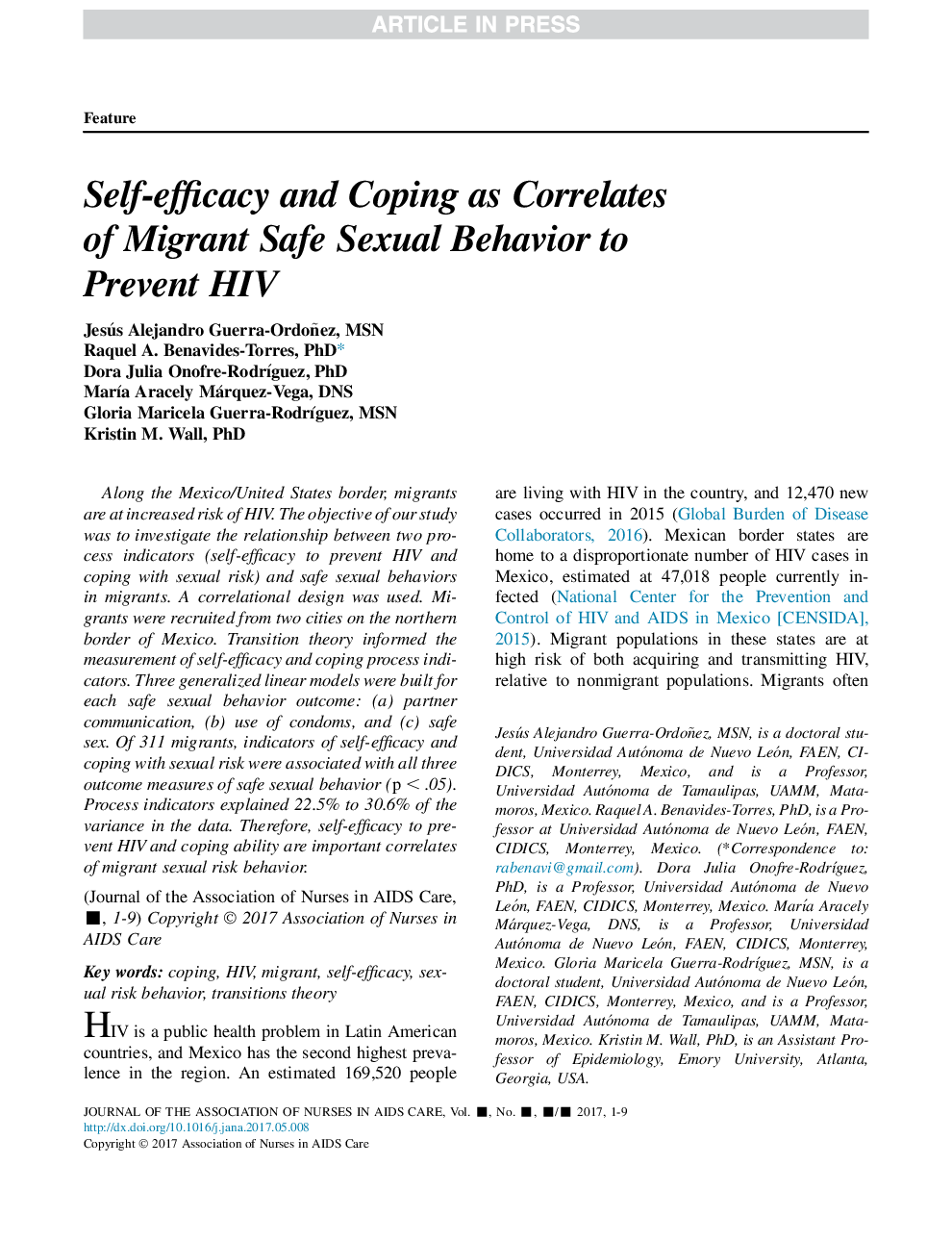| Article ID | Journal | Published Year | Pages | File Type |
|---|---|---|---|---|
| 5569203 | Journal of the Association of Nurses in AIDS Care | 2017 | 9 Pages |
Abstract
Along the Mexico/United States border, migrants are at increased risk of HIV. The objective of our study was to investigate the relationship between two process indicators (self-efficacy to prevent HIV and coping with sexual risk) and safe sexual behaviors in migrants. A correlational design was used. Migrants were recruited from two cities on the northern border of Mexico. Transition theory informed the measurement of self-efficacy and coping process indicators. Three generalized linear models were built for each safe sexual behavior outcome: (a) partner communication, (b) use of condoms, and (c) safe sex. Of 311 migrants, indicators of self-efficacy and coping with sexual risk were associated with all three outcome measures of safe sexual behavior (p < .05). Process indicators explained 22.5% to 30.6% of the variance in the data. Therefore, self-efficacy to prevent HIV and coping ability are important correlates of migrant sexual risk behavior.
Related Topics
Health Sciences
Medicine and Dentistry
Infectious Diseases
Authors
Jesús Alejandro MSN, Raquel A. PhD, Dora Julia PhD, MarÃa Aracely DNS, Gloria Maricela MSN, Kristin M. PhD,
